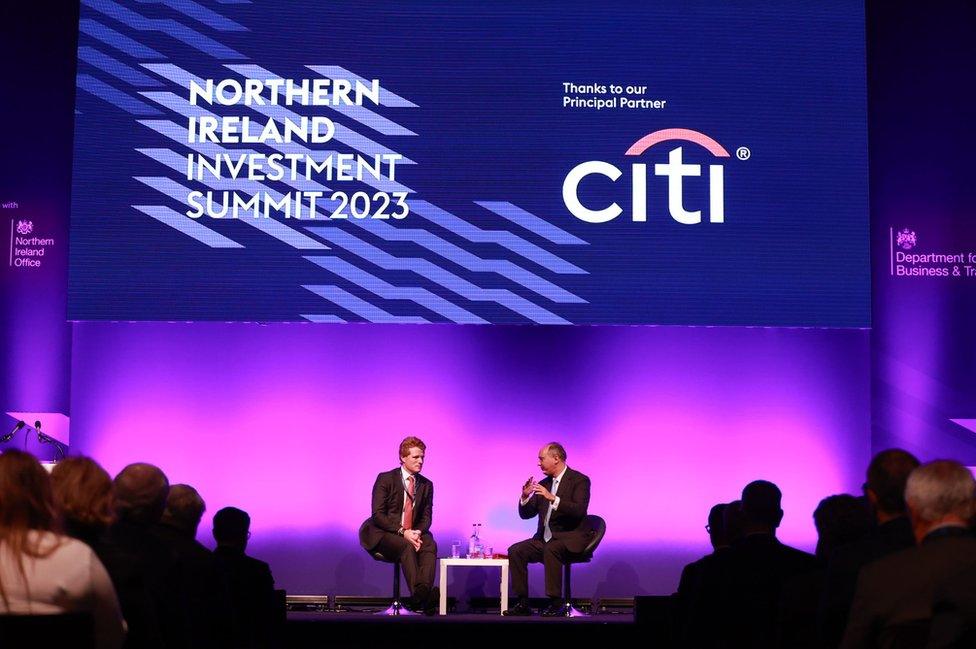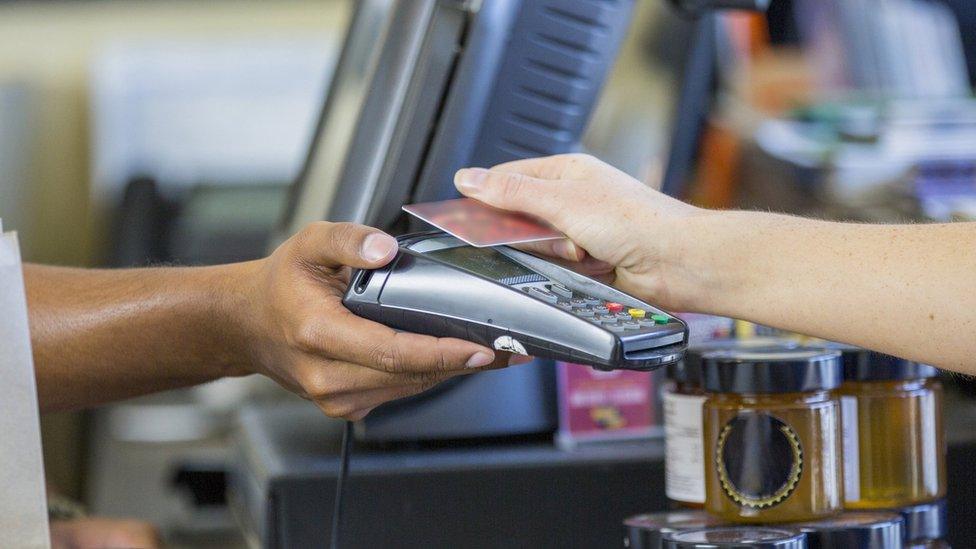Northern Ireland economy starts to cool long before winter sets in
- Published

There was a buzz of positivity at the Northern Ireland Investment Summit but the economy is showing signs of weakness
As delegates from the Northern Ireland investment conference arrived at Hillsborough Castle on Wednesday evening there was an autumnal feeling.
Rain teemed from the darkening sky and a blustery wind blew across the square.
And data released this week suggests the Northern Ireland economy is cooling too.
The services sector is the dominant part of that economy and has accounted for most of the growth since the pandemic.
In the first quarter of this year the sector grew strongly and output reached a record high.
But this week's figures showed a contraction of 0.8% in the second quarter of the year.
The service sector contains a very broad range of activities and the fall was not seen across the board - for example business services were still performing strongly.
Household finances facing more pressure
In fact the weakness was concentrated in just the largest subsector: retail and hospitality.
A slowdown in those areas is not a surprise given that they rely heavily on discretionary spending from consumers who are being squeezed by inflation.
The data covers April, May and June when inflation was running at respectively 8.7%, 8.7% and 7.9%.
The optimistic case is that consumer spending may recover a bit as the rate of inflation slows.
However rising interest rates will gradually take a bite out of more and more mortgage payers, leaving their personal finances under pressure.

The services sector covers a broad range of activity including retail, hospitality and business services
Data from the jobs market also pointed to an economy which is starting to cool.
The jobs market has recovered quite strongly since the Covid pandemic.
On the eve of the first lockdown in March 2020 there were about 754,000 people on company payrolls which fell to below 737,000 by the end of the year.
Since then the story has been one of growth and payrolled employees stood at just over 791,000 in August.
That was marginally lower than July, which on its own would not be enough to suggest the jobs market has turned.
Is the economy facing a tough winter?
But other data is also turning negative: the Quarterly Employment Survey of about 6,000 companies showed the first quarterly decrease in employee jobs after two years of growth.
The number of people claiming unemployment-related benefits increased in August, up by 0.4% to 36,700.
The overall unemployment rate in May to June also showed an increase, up to 2.7% from 2.4% the previous quarter.
The employment rate, which measures the percentage of working age adults in a job, also weakened over the quarter, down from 72.4% to 71.1%.
This week also brought the regular Ulster Bank business survey, known as the Purchasing Managers' Index, which can give a good idea of where the official data is heading.
The survey suggests that in August overall business activity fell for the second month in a row, with the decline in each of the four broad sectors - services, manufacturing, retail and construction.
Despite the data it did not feel like a gloomy week: the investment conference was like a pep rally for the business community.
Announcements unrelated to the conference also show confidence in some businesses.
The IT firm Options revealed plans to add 200 jobs and the property investors Michael and Lesley Herbert paid over the asking price for the Forestside shopping complex in Belfast.
But with no sign of an end to the pressure on household budgets and with energy prices still high it could be another tough winter.
Related topics
- Published14 September 2023

- Published14 September 2023

- Published13 September 2023

- Published11 September 2023
